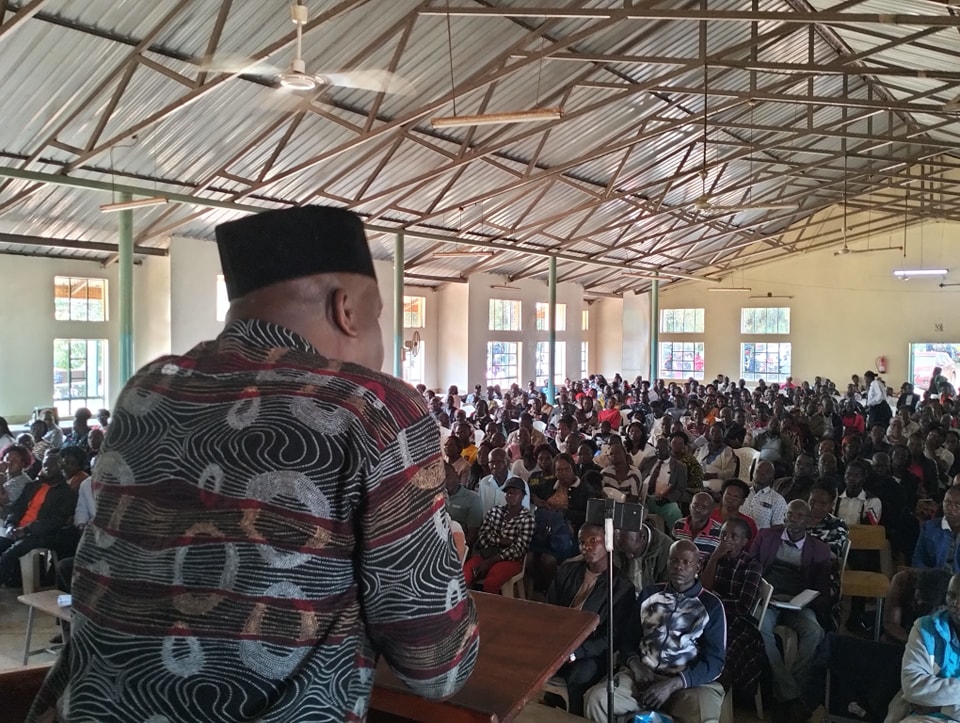Discrimination and maltreatment of Kenyans is everyday music, far and wide. Yet let it be clearly warned: Kenya will not stand by silently. Our dignity is not for bargaining. Our patience is not infinite. Continued disrespect of our citizens, whether in distant continents or neighboring countries, risks challenging a nation that has consistently risen above pettiness and injustice to lead with grace and moral authority.
Irony sometimes arrives before truth, and nowhere is it sharper than in how Kenya treats foreigners with warmth and respect, while our own citizens face contempt abroad. This is not limited to distant continents; even in some African countries, xenophobic attitudes towards Kenyans have been recorded. Harassment in marketplaces, bias in employment, social exclusion—our people are forced to navigate hostility where cultural and regional ties should have ensured solidarity.
Since 2023, over three thousand four hundred Kenyans in the Middle East have lodged distress reports with our embassies. Hundreds have been repatriated after severe exploitation. These are not faceless numbers—they are doctors, nurses, engineers, teachers, and ordinary citizens whose lives have been disrupted, whose dignity has been violated. While these challenges abroad grab headlines, the subtle xenophobia in some African nations adds another bitter layer: our citizens are often treated as outsiders in lands where one would expect belonging.
Kenya does not need a manual to teach hospitality. From Gikomba’s markets to Diani’s sands, from chaotic matatu stages to quiet rural homes, our warmth is unforced, consistent, and deeply cultural. We do not treat foreigners with dignity because we must. We do it because respect is woven into our moral DNA.
Yet the world repays our grace with contempt. A Kenyan lands abroad and meets suspicion at the airport. A Kenyan applies for a job and is judged not by skill but by passport. A Kenyan speaks and is mocked for accent, as if fluency were reserved for others. Skilled professionals, those who sacrificially offer their services, are manhandled, underpaid, and sometimes abused. Promises of opportunity turn into cages of control, bureaucratic humiliation, and fear. Even within Africa, our people often face exclusion, bias, or verbal hostility in countries where they should feel safe.
Consider the nurse who left Nairobi to save lives. Her rest days canceled, her visa tied to her employer, she was trapped in a cycle of work and obedience. Her hands still heal, but her spirit is bruised. Consider the single mother who left her child behind to build a future abroad. Her documents were withheld, her child’s exit visa denied, her pleas unanswered. She gave everything for opportunity, only to be denied dignity.
CS Ogamba hails smooth completion of 2025 KCSE exams as national assessment cycle ends
Parliamentary records reveal that ninety Kenyan domestic workers died in Saudi Arabia between 2019 and 2021. Thousands more made distress calls, echoing the cruelty of systems that exploit human labor while denying human rights. Some mothers are trapped with stateless children, their lives held hostage by bureaucracy and prejudice. These are not isolated tragedies—they are a pattern, a global hypocrisy, a stain on the conscience of nations that depend on Kenyan talent yet refuse to respect Kenyan humanity.
What these stories reveal is blunt: there is a systematic failure of protection for Kenyans abroad. Skilled Kenyan workers are not immune to exploitation. They arrive with diplomas and dreams, only to find themselves trapped in systems that do not respect either. Their suffering is not just about poor pay; it is about broken promises, constrained freedom, and emotional devastation.
And yet, despite these injustices, Kenya restrains itself—not because we are weak, but because we are principled. Our cultural values do not permit reckless retaliation. We feel the pain, we see the patterns, and we act—but with measured dignity. We feel pained—deeply pained—but we are firmly guided by respect for human dignity, not fear of revenge.
But calm should not be mistaken for limitless patience. When injustice becomes too loud, even gentleness begins to question itself. Let no country push Kenya to a point where retaliation becomes a conversation. Kenya’s kindness is not naivety. Our courtesy is not weakness. Our dignity is not a doormat.
We choose respect because disrespect is a virus—it spreads, it poisons, it destroys. Kenya prefers to heal where others infect. We operate with fairness where others trade in prejudice. But fairness cannot be one-sided. You cannot enjoy our markets, our landscapes, our investments, our friendship—and then treat our citizens as lesser beings in your territory.
Our neighbours and other foreign nationals do a lot of business in Kenya. Their investments flourish, their companies operate freely, and their cars move with ease on our roads. Meanwhile, Kenyan businesses and citizens abroad often face obstacles, restrictions, and outright discrimination. This stark contrast underscores the global hypocrisy: while Kenya’s doors remain open, our people are barred from equal treatment. Hospitality at home must not be mistaken for weakness. Reciprocity is not optional—it is a matter of justice.
Kenya is not a marginal player. Kenya is one of Africa’s superpowers. Our economy is a gateway for trade and investment across the continent. Our talent fuels industries not only at home but abroad. Our diplomats negotiate regionally and globally, shaping policies that affect millions. A nation with such influence cannot allow its citizens to be treated as lesser abroad. Respect for Kenya must be proportional to the weight of our contribution and the stature we hold on the African continent and beyond.
Bomet JSS teachers announce Monday demonstration to demand confirmation of interns
Our diaspora fuels economies worldwide. Our talents enrich hospitals, schools, research labs, construction sites, and homes in countries that depend on Kenyan expertise. Yet too often, our people return home scarred by humiliation, injustice, and even xenophobia.
Moreover, the voices of Kenyans online should not be underestimated. Social media campaigns, advocacy networks, and digital activism amplify the struggles of those facing injustice abroad. Every tweet, post, and petition is a signal to governments, institutions, and the world: Kenyan dignity cannot be ignored. The digital sphere has become a battleground where awareness meets accountability, and the argument of our people online carries weight that can no longer be dismissed.
If equally measured wrath were ever to be unleashed upon the perpetrators of discrimination and brutality against Kenyans abroad, the entire world would come to a standstill. Let this be understood with the weight it deserves. Kenyans have been patient—not because they are weak, not because they lack options, and certainly not because they are blind to the daily indignities inflicted on their brothers and sisters across borders. They have withheld retaliation because their national character is anchored on dignity, peaceful coexistence, and moral restraint. But that restraint should never be mistaken for helplessness. Kenya’s influence is structural; those who mistreat our citizens should tread carefully.
This reality underscores an urgent truth: a relook at our foreign policy on Kenyans must be immediate and decisive. Diplomacy cannot be reactive; it must be proactive, strategic, and unyielding in defending the rights of our citizens. Every embassy, every consulate, every diplomat must carry the mandate not just to negotiate trade deals or cultural exchanges, but to safeguard the dignity, safety, and legal rights of Kenyans abroad. Kenya’s moral authority must be matched by practical measures that ensure protection, justice, and respect wherever our people go.
We call for one thing: dignity. For every Kenyan abroad, not privilege, not special treatment—simply dignity. Kenya will continue to rise above pettiness. We will continue to welcome foreigners with decency. We will continue to model humanity even when others fail to show it. But hospitality should never be mistaken for helplessness. Treat our people well, not because we demand favors, but because it is justice, decency, and what true partnerships deserve. Respect Kenya the way Kenya respects you. Honour our people the way we honour yours. Match our dignity with your conscience. Only then will the irony truly adapt.
By Hillary Muhalya
You can also follow our social media pages on Twitter: Education News KE and Facebook: Education News Newspaper for timely updates.
>>> Click here to stay up-to-date with trending regional stories
>>> Click here to read more informed opinions on the country’s education landscape






